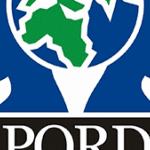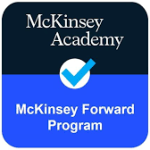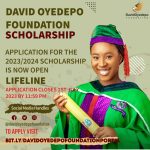Wellcome Early-Career Awards 2024 for Researchers in UK, Ireland & Developing countries. Apply below.
When is Application Deadline:
5th October 2023, 17:00 BST
Tell Me About Award:
This scheme provides funding for early-career researchers from any discipline who are ready to develop their research identity. Through innovative projects, they will deliver shifts in understanding that could improve human life, health and wellbeing. By the end of the award, they will be ready to lead their own independent research programme.
Type:
Grants
Who can Apply?
You can apply to this scheme if you are an early-career researcher and you are ready to design, plan and deliver your own innovative research project that aims to:
- advance understanding in your field
and/or
- develop methodologies, conceptual frameworks, tools or techniques that could benefit health-related research.
During the award, we expect you to:
- expand your technical skills and/or your experience of different research methodologies or frameworks
- build a collaborative network with other researchers in your field
- develop your people management skills
- advance your understanding of how to complete research responsibly and promote a positive and inclusive culture.
Your research can be in any discipline – including science, technology, engineering and mathematics (STEM), experimental medicine, humanities and social science, clinical/allied health sciences, and public health – as long as it has the potential to improve human life, health and wellbeing, and aligns with our funding remit.
Career stage and experience
At the point you submit your application, you must have completed a substantive period of research training relevant to your discipline.
You must have:
- completed a PhD (for example, in the life sciences) or an equivalent higher research degree. At the point of application you must have passed your viva examination.
or
- if you have not started a PhD or equivalent degree, at least four years’ equivalent research experience (for example, in the humanities and social sciences).
You can apply if you hold a permanent, open-ended or long term rolling contract and are based in a low- or middle-income country. All other eligibility criteria apply.
You may also have some postdoctoral experience in your proposed field of study, but no more than three years unless you can demonstrate how other factors have impacted on your research career. When we review how much postdoctoral experience you have, we will allow for part-time work, the impact of the Covid-19 pandemic, career breaks (for example, parental leave or long-term sick leave) and other significant amounts of time spent outside research (for example, clinical training).
We will also consider whether you have changed research discipline. For example, moving from astrophysics to computational neuroscience. There may be some crossover, such as in research sites or techniques, but the shift should still be a significant change.
We consider postdoctoral experience as any periods spent in research after you passed your PhD/higher research degree viva.
You should be able to demonstrate:
- a good understanding of research methodology
- evidence of project delivery and analysis.
You should not need close supervision to complete your proposed research, although you may need training in new techniques and experimental approaches.
If you are a health professional and you want to continue with clinical activities, you must be registered with, and be licensed by, the relevant professional regulator in the country you intend to work in. Read our Q&As for health professionals.
You must be able to contribute at least 80% of your research time in support of the project proposed in the award. You should not spend more than 20% of your time on non-research related activities, for example clinical duties, teaching or administration. If you’re based in a clinical craft specialty, you may spend up to 40% of your time on clinical duties.
By the end of the award
By the end of the award, you should have the research maturity to develop, manage and lead your own creative, independent research programme.
If you decide not to pursue a career in research, you’ll have transferable skills that you can use in roles related to research or outside of research, for example in industry or teaching.
Host organisation
You must have sponsorship from an eligible host organisation in one of the following:
- UK
- Republic of Ireland
- a low- or middle-income country (apart from India and mainland China).
It can be a:
- higher education institution
- research institute
- non-academic healthcare organisation
- not-for-profit organisation.
You should choose a research environment that provides you with the appropriate training, resources and experience to deliver your project and develop your research skills and identity. We encourage you to move away from your current research environment. This may mean moving from your group or department, but it is not essential to move organisations.
Time spent away from research
You can apply if you’ve spent time away from research (for example a career break, maternity leave, or long-term sick leave). We’ll allow for this when we consider your application.
Depending on your previous career stage and the level of supervision and retraining you need now, you may also want to consider a Career Development Award.
How are Applicants Selected?
We will review your research proposal, skills and experience, and research environment.
Your research proposal
To be competitive, your research proposal will be:
- Bold. It aims to deliver a significant shift in understanding and/or it provides a significant advance over existing methodologies, conceptual frameworks, tools or techniques. It has the potential to stimulate new and innovative research.
- Creative. Your proposed approach is novel – it develops and tests new concepts, methods or technologies, or combines existing ideas and approaches in a new way.
- High quality. It is well-designed, clear, supported by evidence and the proposed outcomes/outputs are feasible.
Your skills and experience
We will review:
- Your previous research outputs and contributions to the research community.
- Your research skills and experience of different methodologies, and how you plan to develop these during the award.
- How you will develop your management skills and capabilities for leading a research programme.
Your research environment
We will review:
- How your research environment(s) will support you to deliver your research programme and develop as a researcher.
- How your host organisation will help you develop your project and management skills.
- How you will contribute to a positive and inclusive research culture.
Who can’t apply
You are not eligible to apply if:
- You have an existing tenured (salaried) post for the duration of the award (unless based in a low- or middle-income country). You can only relinquish an existing tenured (salaried) post to take up an Early-Career Award if your current post is not research-based.
- You have made an application to this scheme and you are waiting for a decision.
- You hold, or have held, an equivalent award at this career stage. An equivalent award does not include short-term funding.
You cannot apply if you intend to carry out activities that involve the transfer of grant funds into mainland China.
Which Countries are Eligible?
UK, Republic of Ireland, Low- or middle-income countries (apart from India and mainland China
Where will Award be Taken?
UK, Republic of Ireland, Low- or middle-income countries (apart from India and mainland China)
How Many Awards?
Not specified
What is the Benefit of Award?
Your salary and up to £400,000 for research expenses. If eligible, you may also request additional funding for overseas allowances and overheads.
How Long will Award Last?
Usually 5 years, but may be less for some disciplines, and may only be longer if held on a part-time basis.
How to Apply:
Visit Award Webpage for Details







